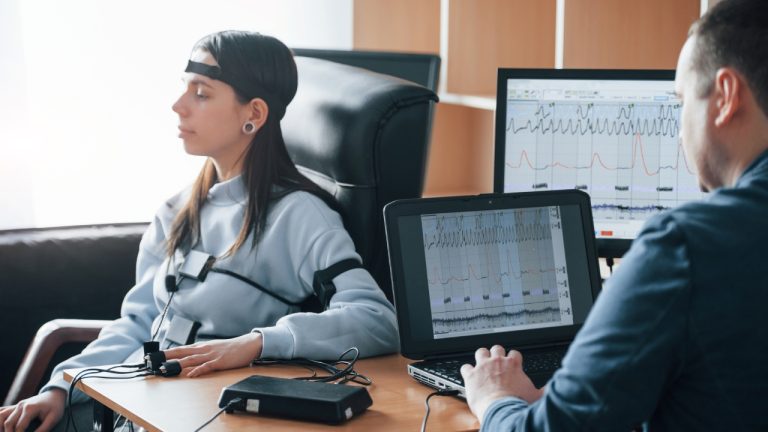Benefits of Family Therapy
When it comes to enhancing relationships and promoting mental well-being, family therapy plays a vital role. This form of therapy is designed to bring family members together to address interpersonal issues and tackle mental health conditions within the family unit.
Improving Interpersonal Relationships
Family therapy focuses on improving communication, resolving conflicts, and building stronger bonds among family members. By working together in a supportive and structured environment, families can develop healthier ways of interacting and understanding each other’s perspectives. This can lead to improved empathy, trust, and overall harmony within the family dynamic.
Engaging in family therapy can also help individuals feel more connected and supported by their loved ones, fostering a sense of belonging and unity. Stronger family relationships can provide a solid foundation for individuals to navigate life’s challenges and celebrate successes together.
Addressing Mental Health Conditions
In addition to strengthening relationships, family therapy is effective in treating mental health conditions that may impact one or more family members. Whether dealing with substance use disorder, oppositional defiant disorder, or childhood behavioral conditions like autism spectrum disorder or attention-deficit hyperactivity disorder (ADHD), family therapy offers a holistic approach to treatment.
Through a combination of support, education, and guidance, family therapy helps families navigate the complexities of mental health conditions. By addressing the specific needs of each family member and providing a safe space for open dialogue, therapy sessions can lead to improved emotional well-being and enhanced coping strategies.
Research studies have demonstrated the effectiveness of family therapy in addressing a wide range of mental health issues, including adolescent substance use, depression, and obesity. By focusing on the family unit as a whole, therapists can facilitate significant improvements in conflict resolution, emotional regulation, and overall family functioning.
Engaging in family therapy not only benefits the individuals receiving treatment but also promotes overall family well-being. Studies have shown that family involvement in mental health care can lead to reduced relapses, improved medication adherence, and enhanced quality of life for individuals with mental illness. By working together as a cohesive unit, families can create a supportive environment that fosters healing, resilience, and long-term emotional stability.
Types of Family Therapy
In the realm of mental health and substance abuse treatment, family therapy plays a pivotal role in fostering healthier relationships and addressing specific conditions within the family unit. Various types of family therapy are available, each tailored to cater to the unique needs and circumstances of individuals seeking support.
Tailored Approaches
Family therapy can encompass a wide array of family members, including parents, children, siblings, grandparents, and extended familial connections. This collaborative approach aims to enhance relationships among family members and effectively address specific mental health or behavioral conditions like substance use disorder or oppositional defiant disorder. Therapists adeptly combine elements from diverse therapeutic approaches to create a customized treatment plan that optimally caters to the family’s requirements and goals.
One form of family therapy that stands out is psychoeducation, particularly beneficial for families navigating mental health challenges. Psychoeducation equips families with fundamental knowledge about the condition being addressed, its origins, available treatments, and potential outcomes. This knowledge empowers families to better understand and support their loved ones through their mental health journey.
Support and Education
Family therapy serves as a transformative conduit for resolving relational conflicts by engaging the entire family in a collaborative process. It facilitates enhanced communication, conflict resolution, and the establishment of healthy boundaries. This inclusive approach extends to various scenarios, including parent-child disagreements, blended family dynamics, and navigating significant life transitions (Therapy Center of New York).
In certain cases, family involvement in Cognitive Behavioral Therapy (CBT) for Anxiety and Related Disorders (ARDs) has been an area of exploration to improve treatment outcomes. While the impact of family involvement in CBT for ARDs remains inconclusive due to variations in study methodologies and treatment formats, ongoing research endeavors to decipher the benefits of family integration in enhancing treatment effectiveness (Source).
By embracing tailored approaches and providing essential support and education, family therapy serves as a vital conduit for nurturing healthier relationships and promoting holistic well-being within the familial framework.
Family Therapy for Behavioral Disorders
In the realm of mental health and substance abuse treatment, family therapy plays a pivotal role in addressing behavioral disorders and fostering healthier relationships within families. By focusing on the collective well-being of the family unit, therapy can help individuals navigate challenges and develop strategies for improved communication and understanding. Let’s explore how family therapy can assist neurodivergent members and treat childhood behavioral conditions.
Helping Neurodivergent Members
Family therapy has shown remarkable effectiveness in assisting families with neurodivergent members, such as individuals diagnosed with conditions like autism spectrum disorder and attention-deficit hyperactivity disorder (ADHD). These sessions provide a safe space for families to understand these conditions better, learn coping mechanisms, and strengthen familial bonds. According to the Cleveland Clinic, family therapy can help address behavioral challenges and enhance communication among family members, contributing to a more supportive and harmonious environment for neurodivergent individuals to thrive.
Treating Childhood Conditions
Childhood behavioral conditions can significantly impact family dynamics and relationships. Family therapy offers a holistic approach to addressing these conditions by involving various family members in the therapeutic process. By targeting conditions like ADHD and oppositional defiant disorder, therapy sessions aim to improve interpersonal interactions, provide emotional support, and equip families with practical strategies for managing challenging behaviors. This collaborative approach fosters empathy and understanding within the family unit, ultimately leading to better outcomes for the child and the family as a whole (Cleveland Clinic).
Incorporating family therapy into the treatment plan for behavioral disorders not only supports individuals in overcoming challenges but also empowers families to navigate complex issues together. By prioritizing the mental health and well-being of all family members, therapy can create a nurturing and resilient foundation for healthier relationships and long-term recovery.
Importance of Couple Therapy
In the realm of mental health treatment, couple therapy plays a vital role in enhancing relationship dynamics and supporting individuals in their journey towards holistic well-being. With a focus on promoting healthier relationships and improving communication, couple therapy has witnessed significant growth in the therapy field, reflecting a shift towards more comprehensive and collaborative approaches to mental health care.
Growth in Therapy Field
Couple therapy has experienced a notable surge in popularity, with a substantial 70% of psychotherapists now incorporating couple therapy into their practice (NCBI). This growth signifies a recognition of the unique benefits that couple therapy can bring to individuals seeking support for relationship challenges and mental health concerns. As therapy modalities continue to evolve, the demand for couple therapy is expected to rise, shaping the landscape of mental health treatment in the upcoming decade.
Established Treatment Approaches
The efficacy of couple therapy in addressing relationship distress and improving emotional well-being has been extensively researched and validated. Reviews and meta-analyses have consistently shown that approaches such as cognitive-behavioral couple therapy, integrative behavioral couple therapy, and emotionally focused couple therapy are well-established treatments with proven results (NCBI). These established approaches provide a structured framework for couples to navigate challenges, strengthen their bond, and cultivate healthier patterns of interaction.
Couple therapy has been found to be as effective as, if not more effective than, individual mental health interventions, highlighting its significance in fostering positive outcomes for couples facing various relationship obstacles. By incorporating evidence-based practices and utilizing therapeutic strategies tailored to the unique needs of each couple, couple therapy stands at the forefront of promoting relationship health and emotional resilience.
As the field of mental health treatment continues to evolve, couple therapy remains a cornerstone in supporting individuals and couples in their journey towards stronger, more fulfilling relationships. By embracing the growth and effectiveness of couple therapy, individuals can embark on a transformative path towards enhanced relationship dynamics and emotional well-being.
Effectiveness of Couple Therapy
When it comes to enhancing relationships and addressing relationship difficulties, couple therapy has shown to be a valuable intervention. A key aspect of couple therapy is its effectiveness in reducing relationship distress, fostering understanding, and promoting healthier communication patterns.
Reducing Relationship Distress
Research studies, including reviews and meta-analyses, have consistently highlighted the positive impact of couple therapy in reducing relationship distress. Therapeutic approaches such as cognitive-behavioral couple therapy, integrative behavioral couple therapy, and emotionally focused couple therapy have been recognized as well-established treatments. By participating in couple therapy sessions, partners can address underlying issues, improve conflict resolution skills, and strengthen emotional bonds.
Comparable to Individual Interventions
Notably, couple therapy has been found to be comparable to, if not more effective than, individual mental health interventions in addressing relationship concerns. The collaborative nature of couple therapy allows partners to work together towards common goals, leading to significant improvements in relationship satisfaction, communication, and overall well-being. The structured approach of couple therapy offers a safe space for partners to express their feelings, address conflicts constructively, and learn effective coping strategies.
By engaging in couple therapy, individuals can gain valuable insights into their relationship dynamics, identify problematic patterns, and develop effective solutions to enhance their bond. The evidence supporting the effectiveness of couple therapy underscores its role as a beneficial and impactful intervention for couples seeking to improve their relationship quality and overcome challenges.
For those seeking to strengthen their relationships and navigate complex dynamics, couple therapy provides a supportive and structured environment to facilitate growth, understanding, and positive change. Consider exploring the benefits of couple therapy as a means to enhance your relationship well-being and foster long-term harmony with your partner.
Integrating Common Factors in Couple Therapy
In the realm of couple therapy, the integration of common factors is essential to fostering positive outcomes and strengthening relationships. Through the utilization of therapeutic strategies and insights from relational science research, couple therapy continues to evolve as a dynamic and effective form of treatment.
Therapeutic Strategies
Effective couple therapy approaches encompass a range of therapeutic strategies designed to address relational challenges and enhance communication. Therapists may employ techniques such as active listening, role-playing exercises, and conflict resolution skills to help couples navigate conflicts and improve their emotional connection. By creating a safe and supportive environment, therapists facilitate meaningful dialogue and encourage constructive interactions between partners.
It is important for therapists to tailor these strategies to the specific needs and dynamics of each couple. By incorporating evidence-based practices and drawing from diverse therapeutic modalities, therapists can empower couples to cultivate healthier patterns of communication and behavior. These strategies are instrumental in fostering mutual understanding, empathy, and cooperation within relationships.
Relational Science Research
The integration of relational science research into couple therapy practices has significantly enriched the field and enhanced therapeutic outcomes. By drawing on empirical findings and psychological theories, therapists are better equipped to understand the underlying dynamics of relationships and tailor interventions to meet the unique needs of each couple.
Relational science research emphasizes the importance of foundational factors such as building a strong therapeutic alliance, instilling hope for positive change, engaging in reciprocal behavioral exchanges, and fostering emotional resonance between partners. These common factors serve as pillars of effective couple therapy and provide a framework for promoting sustainable relationship growth and resilience.
By aligning therapeutic strategies with insights from relational science research, couple therapists can deepen their understanding of relational dynamics and empower couples to navigate challenges, foster emotional intimacy, and build enduring connections. The incorporation of these common factors underscores the ongoing evolution and effectiveness of couple therapy as a transformative form of treatment.







